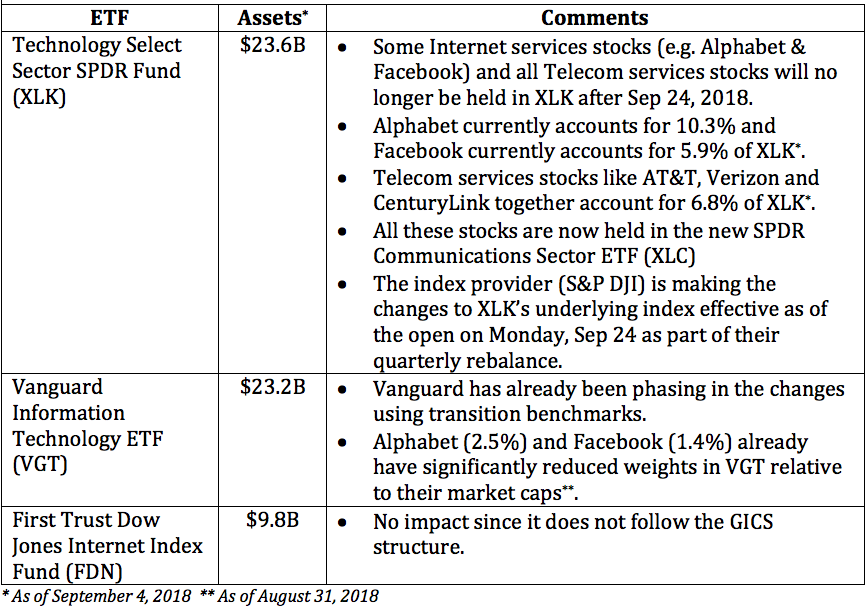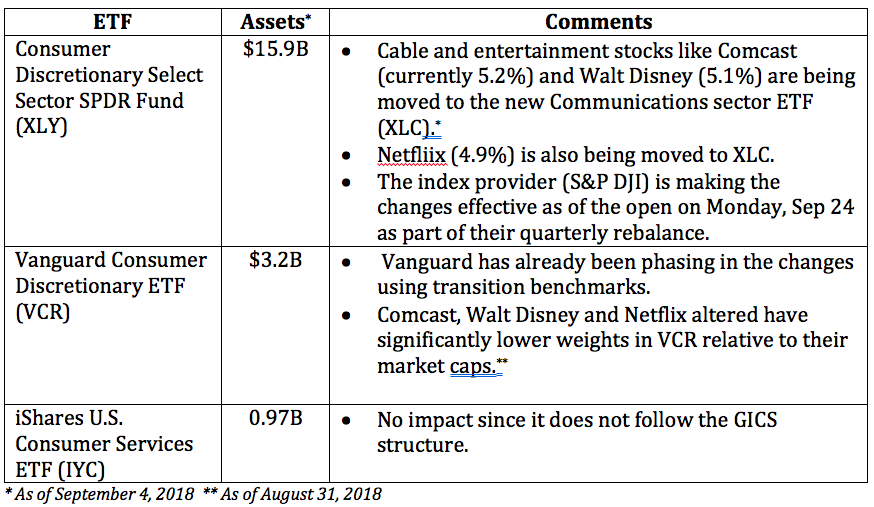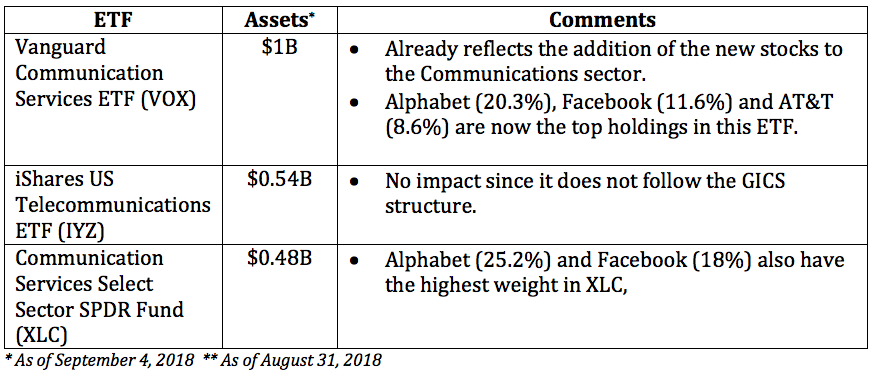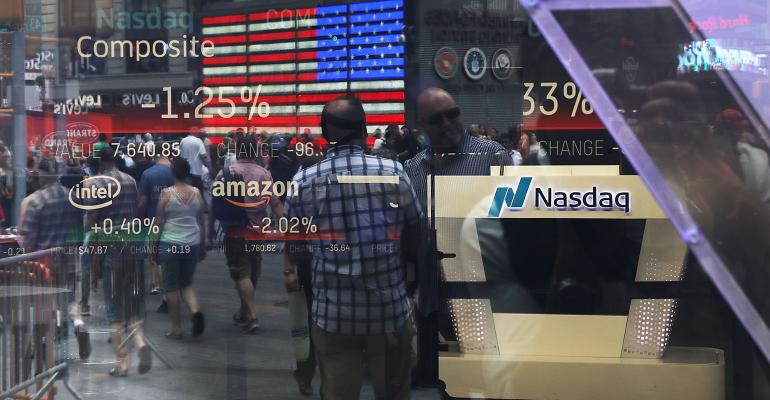Last year, we wrote about the changes announced by MSCI and Standard & Poor’s to the Global Industry Classification Standard, or GICS, the sector classifications taxonomy they introduced in 1999. These changes will become effective in the second half of September 2018, impacting several of the world’s most frequently exchange traded funds.
The GICS framework is the most widely used system to determine the industry sectors that stocks should be classified into. In the four-level GICS system, all stocks are classified into 11 sectors and then further into industry groups, industries and sub-industries. The latest methodology change directly impacts the ETF holdings of the funds that are aligned with this framework.
Stocks getting reclassified don’t impact broad market ETFs that provide overall exposure to the U.S. like SPDR S&P 500 Trust (SPY), iShares S&P 500 (IVV) and Vanguard S&P 500 (VOO). However, it has a direct and significant impact on many sector ETFs, and therefore any investors who hold them.
Impact on Tech Sector ETFs
Only the ETFs that follow the GICS methodology are impacted by this change. The table below summarizes the impact for the three largest tech sector ETFs in the U.S.

Since the Sector SPDRs are the most widely held sector ETFs in investor portfolios, it’s important to understand the changes to those ETFs.
- The SPDR sector ETFs follow the GICS framework until recently when they modified the approach, in other words, instead of tracking all 11 sectors, they only had 10 sector ETFs as Telecom Services was combined with IT.
- With the announced expansion of Telecom to Communications Services, an 11th Sector ETF, the Communication Services Select Sector SPDR Fund (XLC) was launched.
- Social and Search internet stocks like Alphabet and Facebook will now move out of the Technology Select Sector SPDR Fund (XLK) to be held in XLC, the new SPDR Communications Services ETF.
- Diversified telecom stocks like AT&T and Verizon will also move out of XLK.
- As a result, XLK will lose some “growth” internet stocks while simultaneously losing some “defensive” diversified telecom stocks.
- The net effect of these changes is that XLK and Vanguard Information Technology (VGT) will become more “pure play” technology funds, with top ETF constituent holdings like Apple, Microsoft and Cisco.
Impact on Consumer Discretionary ETFs
Two of the three largest ETFs in the U.S. that provide broad consumer discretionary exposure follow the GICS system.

Amazon, which already had a 25 percent weight in XLY, is going to become even more dominant in this sector after media stocks are removed.
Impact on Communications Sector ETFs
The additions to the Communications Services sector like Facebook, Alphabet, Netflix, Verizon and AT&T have already been included in the large ETFs that track this expanded sector.

With the addition and large weight allocated to Alphabet and Facebook in this sector, it means the exposure will be much more cyclical. Traditionally, Telecom Services was considered a low volatility, defensive sector. The change will likely result in a higher beta relative to the broad market.
Analyzing how sector ETF exposures and betas have changed after this GICS methodology update will be important for advisors and retail investors who hold them.
Aniket Ullal is the founder and CEO of First Bridge Data, a provider of independent ETF data and analytics to institutional clients.





